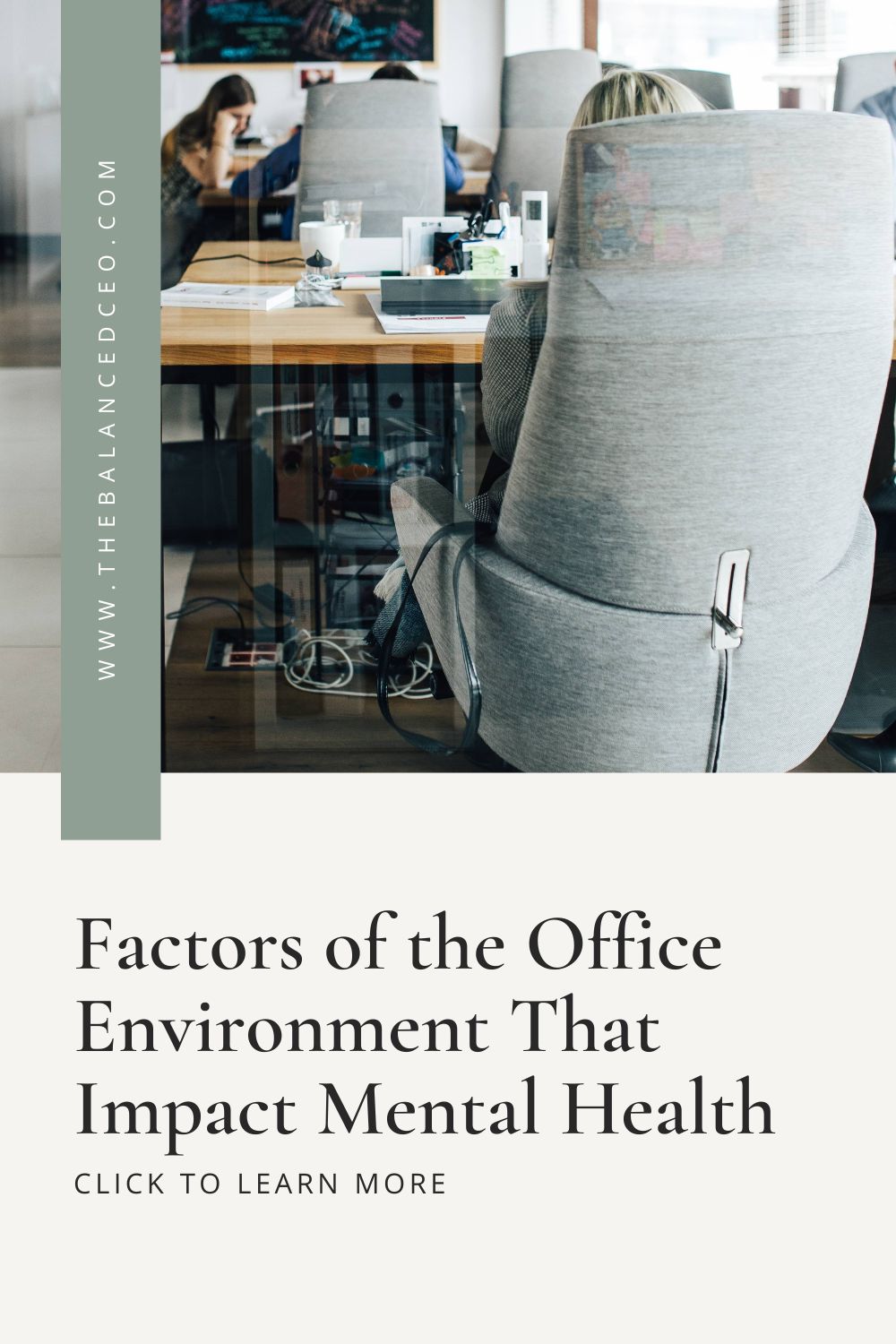This post may contain affiliate links, which means I’ll receive a commission if you purchase through my links, at no extra cost to you. Please read full disclosure for more information.

It’s easy to overlook how deeply a physical office space can affect a person’s mental well-being. Subtle but important factors of the office environment impact mental health every day, shaping not only productivity but also employee satisfaction and overall happiness. Recognizing these factors and addressing them can empower you to create a healthier workspace.
Balance of Private and Open Spaces
While shared spaces encourage creativity and teamwork, they can also leave employees craving solitude now and then. A well-designed office needs areas where individuals can focus and recharge without interruptions.
Private work pods, quiet corners, or dedicated rooms allow for reflection and deep concentration, striking a harmony that considers diverse working styles. By recognizing the need for both community and autonomy, you can support mental clarity and reduce stress in the office.
Types of Lighting
Lighting affects the mood and energy of everyone in a space. Harsh fluorescent lights often cause headaches and fatigue, while dim spaces may foster lethargy.
Natural light is usually the best option for boosting serotonin levels and improving overall well-being. However, when daylight access is limited, adjustable LED lighting with a warm tone can work as well.
Noise Control
Office chatter can spark collaboration, but uncontrolled noise creates stress and disrupts concentration. Employees should have tools to reclaim their focus, whether through noise-canceling technology, soundproof booths, or strategic layout decisions that limit echo and keep busy areas separate from quiet zones.
Acoustic panels, carpeting, and soft furnishings also absorb noise and reduce distractions, leaving room for creativity to flourish without causing mental strain.
Quality Furniture
Mental health is something to be aware of when purchasing your office furniture. Ergonomic furniture that aligns with the body promotes comfort and reduces physical strain, directly influencing mental clarity and mood.
Adjustable desks, supportive chairs, and flexible workstations can make eight-hour days feel far less taxing. Prioritize quality over frugality because investing in the right furniture ultimately leads to a happier, healthier working life.
Art and Decor
Artwork with vibrant or calming colors and thoughtfully placed greenery throughout the office can work wonders for morale. Plants, in particular, enhance air quality and create a natural, restorative atmosphere.
Conclusion
We spend a significant portion of our lives at work. By thoughtfully addressing the factors of the office environment that impact mental health, you can create a space that supports the well-being of everyone in the office.





Leave a Reply